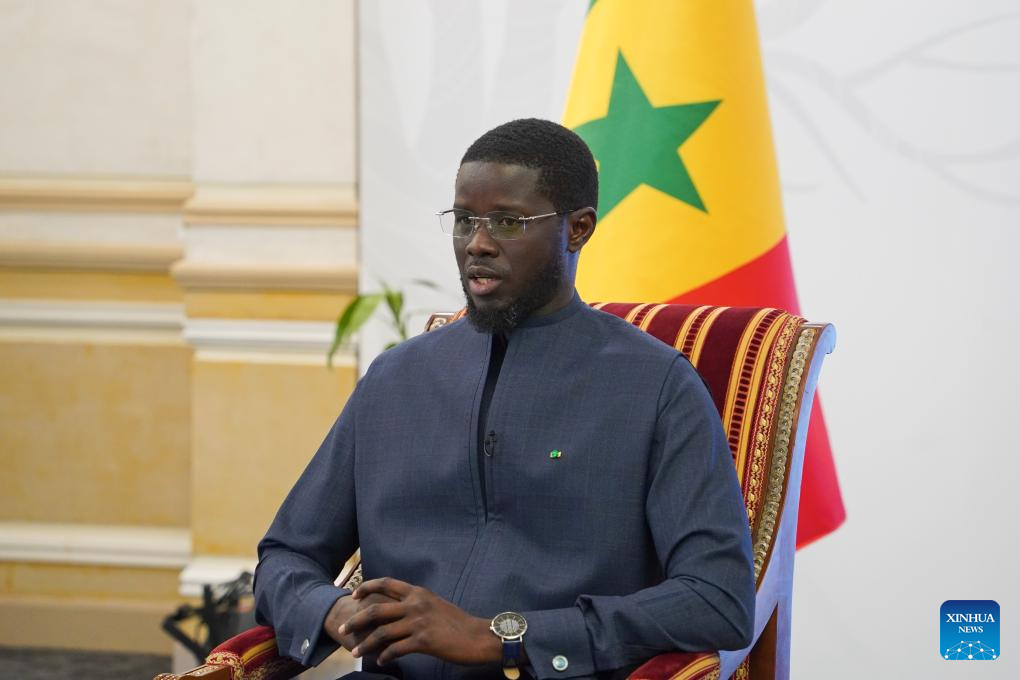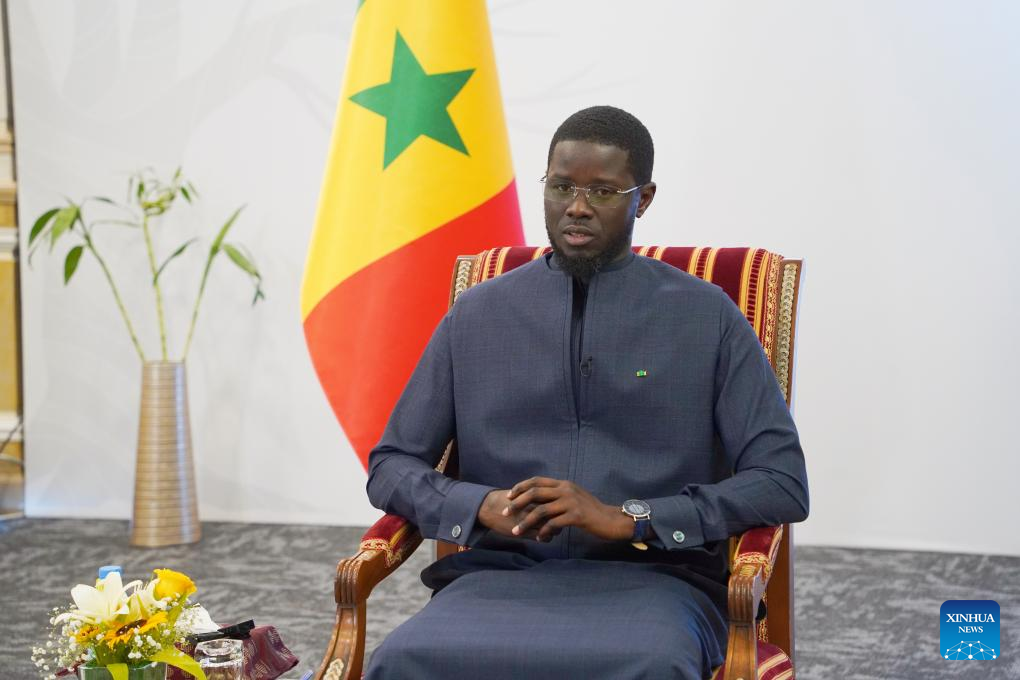
Senegalese President Bassirou Diomaye Faye receives an interview in Dakar, capital of Senegal, Aug. 30, 2024. (Xinhua/Wang Zizheng)
DAKAR, Sept. 5 (Xinhua) -- The Forum on China-Africa Cooperation (FOCAC) represents an innovative framework for South-South cooperation and a platform for fruitful exchange and dynamic partnership, and China and Africa will establish a stronger and higher-level partnership in the future, said Senegalese President Bassirou Diomaye Faye in a recent interview with Chinese media here.
"The relations between China and Africa shows a dynamic of strengthening and diversification, and FOCAC is an important tool in support of this cooperation," Faye said.
The theme of the 2024 FOCAC Summit is "Joining Hands to Advance Modernization and Build a High-Level China-Africa Community with a Shared Future."
Faye said the summit is an important moment to review China-Africa partnership, consolidate achievements, and outline new perspectives for mutually beneficial cooperation.
Since its creation in 2000, the FOCAC has become an innovative framework for South-South cooperation, offering a platform for fruitful exchange and dynamic partnership, he added.
"FOCAC has helped consolidate solidarity between our two regions, while establishing concrete mechanisms to promote economic and social development," he said.
As a platform for regular dialogue, FOCAC, through the adoption of initiatives and action plans, enables the mobilization of resources to finance structuring projects in Africa, drawing inspirations from the Chinese model, he said, adding that "FOCAC amplifies the voices of China and Africa on the international stage, as it notably advocates for equality and mutual trust, win-win cooperation, solidarity and mutual assistance."
In 2021, the 8th ministerial conference of FOCAC was held in Dakar. As the co-chair of FOCAC and the host of the 8th FOCAC Ministerial Conference, Senegal has witnessed significant achievements of this partnership, particularly in the field of infrastructure with the implementation of the Belt and Road Initiative (BRI).
"Many roads, highways, ports, airports and railways have been constructed. Significant investments have also been made in agriculture, technical and vocational training, water management, and health," he said.
For Faye, the follow-up of initiatives and programs launched during the forum shows China's firm commitment with Africa, "which bodes well for a stronger and higher-level partnership."
China and Senegal elevated their bilateral relations to a comprehensive strategic cooperative partnership in 2016, and Senegal is the first West African country to join the BRI.
The Senegalese president expressed his hope to further strengthen cooperation with China and elevate it to a higher level, "particularly in priority sectors such as agriculture, industrialization, water management, technical and vocational training, and digitalization," he said.
Faye said the Global South, primarily consisting of developing countries, is becoming increasingly relevant in international relations. He also underscored the urgency of reforming the international system "to make it more inclusive, fairer, and more equitable in the best interest of all."
Regarding the achievements of the Chinese modernization, he said that with a policy of reform and opening up, China has achieved impressive progress on the path to modernization, thanks to an approach that combines rapid economic development, poverty reduction, and the improvement of living conditions for the Chinese people.
The Chinese modernization model, based on strong innovation capacity, advanced industrialization, and efficient resource management, has lifted hundreds of millions of Chinese out of poverty. "It is a source of inspiration for many developing countries, including Senegal," he said. ■

Senegalese President Bassirou Diomaye Faye receives an interview in Dakar, capital of Senegal, Aug. 30, 2024. (Xinhua/Wang Zizheng)



